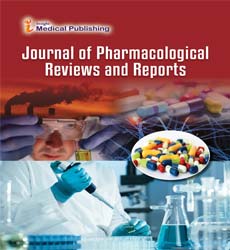Formulation and evaluation of Macroemulsion based gel of dimethyl fumarate for Psoriasis as topical delivery
Abstract
The rationale of the current investigation was to develop a microemulsion based gel in the treatment of Psoriasis. The study consisted of Preformulation studies, Analytical method development studies, Formulation and characterization studies, Drug release studies and stability study. On the basis of results of solubility studies in different oils, surfactants and co-surfactants, tween 20 used as surfactant, IPA as co-surfactant and limonene as oil were chosen for the study. Pseudo ternary phase diagrams in different ratios of oils, S mix and water were developed, and 3:1 is suitable for preparation of MBG. On the basis of transparency, centrifugation, pH, globule size, zeta potential, polydispersity index, conductivity, thermodynamic stability, TEM, Dye solubility test and dilution test, formulation ME 2 batch was selected as an optimized formulation for designing Microemulsion. The pH of the formulations was found to vary between 6.26 and 6.79, a near neutral range which is ideal for topical applications. The Transmission electron microscopy of dimethyl fumarate loaded microemulsion showed a nanosized (70.31 nm) and spherical shape. The optimized batch has (-11.1) mV zeta potential, which indicates stable Microemulsion. From the stability study, we conclude that none of the Microemulsion systems showed signs of phase separation on centrifugation and freeze thaw cycle, so we conclude that the optimized batch was robust enough. The optimised ME 2 batch of dimethyl fumarate microemulsion was further incorporated in gel using aloe vera as moisturizing agent, carbopol as gelling agent. The pH of MBG was acceptable for the topical delivery system. Viscosity of the optimized batch MBG 2 has acceptable consistency. From in vitro drug release study was carried out in phosphate buffer pH 7.4 using dialysis membrane up to 9 hrs. MBG showed 83.35% drug release at the end of 9 hrs. Stability study was performed for optimized MBG for 60 days as per ICH guidelines. The formulated dimethyl fumarate loaded MBG in the treatment of psoriasis as a topical drug delivery system that has potential to induce prolonged drug release on topical administration and could therefore produce some benefits such as reduction in total dose and magnitude of systemic side effects. The optimised formulation can serve as sustained drug release. Furthermore, in vivo studies are necessary to demonstrate the potential effect of Microemulsion based gel delivery of drug.
Open Access Journals
- Aquaculture & Veterinary Science
- Chemistry & Chemical Sciences
- Clinical Sciences
- Engineering
- General Science
- Genetics & Molecular Biology
- Health Care & Nursing
- Immunology & Microbiology
- Materials Science
- Mathematics & Physics
- Medical Sciences
- Neurology & Psychiatry
- Oncology & Cancer Science
- Pharmaceutical Sciences
